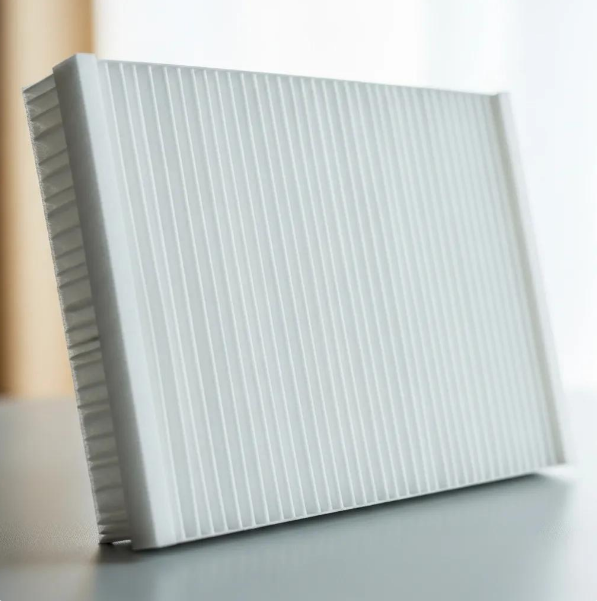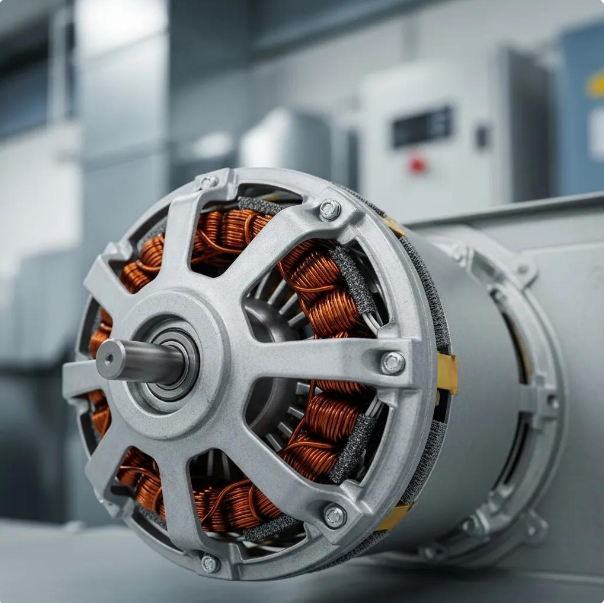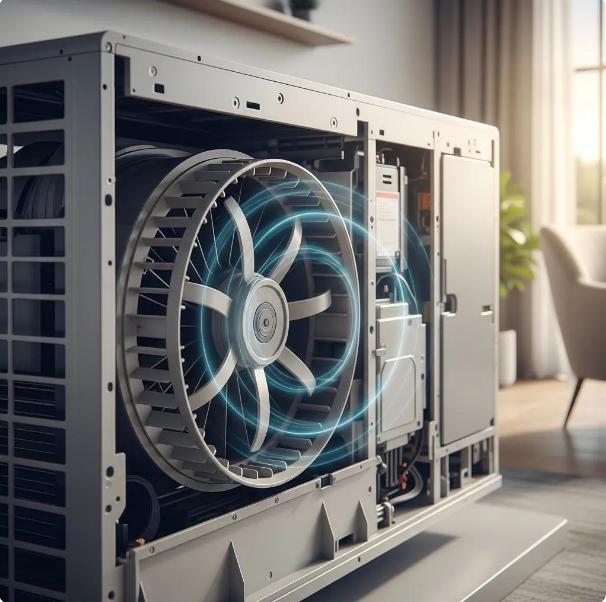Daikin vs Mitsubishi Electric Air Conditioner


Government Rebates Now Available on Energy-Efficient Air Conditioners when Replacing your Gas Heater.
Two brands often stand out when choosing an air conditioning system for your home or business: Daikin and Mitsubishi Electric. These industry giants have established themselves as leaders in the Australian market, offering various air conditioning solutions to meet various needs and preferences.
Choosing between these two brands can be daunting for many consumers. It's important to note that Daikin and Mitsubishi Electric are separate companies, each with its own unique product lines, features, warranty coverage, pricing structures, and maintenance requirements. While both brands have strengths and weaknesses, understanding their differences is important in making an informed decision.
Throughout this article, we'll analyse the pros and cons of Daikin and Mitsubishi Electric air conditioners, helping you determine which brand might best fit your specific needs.
What is Daikin?
Daikin is a Japanese multinational air conditioning manufacturing company founded in 1924. Known for its innovation and quality, Daikin has become a household name in the air conditioning industry. The brand targets residential and commercial markets, offering various air conditioning solutions to suit various needs.
Daikin air conditioners are renowned for their high capacity, with models available for small rooms to large commercial spaces. Their durability is impressive, with many users reporting their systems lasting well over a decade with proper maintenance.
Regarding efficiency, Daikin consistently ranks among the top performers in the industry. Many of their models boast high energy star ratings, translating to lower consumer energy bills. Features like their Intelligent Eye sensor, which detects human presence and adjusts operation accordingly, further enhance their efficiency credentials.
What is Mitsubishi Electric?
Mitsubishi Electric is part of the larger Mitsubishi Group, another Japanese multinational company that has been producing air conditioners since 1954. Like Daikin, Mitsubishi Electric caters to both residential and commercial markets and offers a comprehensive range of air conditioning systems.
Mitsubishi Electric air conditioners are known for their reliability and advanced technology. Their units come in various capacities and suit different room sizes and cooling needs. The brand has built a reputation for producing durable air conditioners that withstand harsh Australian conditions.
Efficiency is a key focus for Mitsubishi Electric, with many models achieving high energy star ratings. Their proprietary technologies, such as the i-See Sensor, which detects room occupancy and temperature variations, contribute to improved energy efficiency and comfort.
What Are the Differences Between Daikin And Mitsubishi Electric?
The differences between Daikin and Mitsubishi Electric air conditioners encompass their company origins, product features, warranty offerings, energy efficiency ratings (EER), noise output levels, pricing structures, and maintenance requirements. While both brands produce high-quality air conditioners, these distinctions can significantly impact consumers' choices.
Each factor is important in deciding which brand might be more suitable for specific needs and preferences. In the following sections, we'll delve deeper into these differences to provide a comprehensive comparison between Daikin and Mitsubishi Electric air conditioners.
Origin Differences Between Daikin And Mitsubishi Electric
The origin differences between Daikin and Mitsubishi Electric lie in their founding dates, initial focus, and company evolution. Daikin, established in 1924, has specialised in air conditioning systems from its inception. In contrast, Mitsubishi Electric, founded slightly earlier in 1921, began as part of the diverse Mitsubishi Group and only entered the air conditioning market in 1954. This variance in their origins and historical focus has influenced their respective approaches to air conditioning technology and design, with Daikin's longer specialisation potentially contributing to its extensive range in the Heating, Ventilation, and Air Conditioning (HVAC) sector.
Air conditioning features Differences Between Daikin And Mitsubishi Electric
The air conditioning features differences between Daikin and Mitsubishi Electric are evident in their unique approaches to sensor technology and air treatment. While both brands offer advanced features, Daikin's Intelligent Eye sensor adjusts the air conditioner's operation based on human presence, potentially saving energy. Mitsubishi Electric's i-See Sensor goes a step further by scanning the room and adjusting operation based on temperature variations and occupancy. Daikin's Coanda Airflow system provides more precise control over airflow direction, while Mitsubishi Electric's Dual Barrier Coating offers enhanced protection against dust and greasy contaminants.
Warranty Coverage Differences Between Daikin And Mitsubishi Electric
The warranty coverage differences between Daikin and Mitsubishi Electric are subtle but noteworthy, with variations depending on specific models and installers. Generally, Daikin offers a 5-year parts and labour warranty on most of its residential systems. Mitsubishi Electric typically provides a similar 5-year warranty on parts and labour for residential systems, with some premium models offering extended warranties. It's important to note that these warranties often require regular servicing by authorised technicians to remain valid.
Energy Efficiency Rating (EER) Differences Between Daikin And Mitsubishi Electric
The Energy Efficiency Rating (EER) differences between Daikin and Mitsubishi Electric are minimal, as both brands produce highly efficient air conditioners. Many models from both manufacturers achieve 5-star or higher energy ratings. However, the exact EER can vary between specific models. For instance, some of Daikin's premium inverter models boast EERs of up to 5.74, while certain Mitsubishi Electric models reach EERs of 5.85. The difference is often marginal and can vary depending on the specific model and capacity.
Noise Differences Between Daikin And Mitsubishi Electric
The noise differences between Daikin and Mitsubishi Electric air conditioners are minimal, as both brands prioritise quiet operation in their units. Daikin's quietest models operate at around 19 dBA in their lowest fan settings, while some Mitsubishi Electric models can operate as low as 18 dBA. However, these differences are often imperceptible to the human ear. The noise levels can vary depending on the model and operating conditions.
Cost of Units and Installation Differences Between Daikin And Mitsubishi Electric
The cost of units and installation differences between Daikin and Mitsubishi Electric are generally minimal, with prices varying widely depending on the model, capacity, and specific installation requirements. Generally, Daikin and Mitsubishi Electric are priced similarly for comparable models. Entry-level split systems from both brands might start around $1,000, while premium models can exceed $3,000. Installation costs typically range from $600 to $2,500, depending on the complexity of the installation.
Maintenance Requirements Differences Between Daikin And Mitsubishi Electric
The maintenance requirements differences between Daikin and Mitsubishi Electric are generally minimal, as both brands require regular upkeep to ensure optimal performance and longevity. This typically includes cleaning or replacing filters, checking refrigerant levels, and inspecting electrical connections. The frequency of maintenance is similar for both brands, with most manufacturers recommending professional servicing at least once a year. However, Mitsubishi Electric's Dual Barrier Coating may reduce the frequency of cleaning required for some components, offering a slight advantage in this aspect.
Air conditioning production types Differences Between Daikin And Mitsubishi Electric
The differences between Daikin and Mitsubishi Electric in air conditioning production types are evident in their product ranges and market focus. Both companies produce various air conditioning types, including split systems, multi-split systems, ducted systems, and commercial Heating, Ventilation, and Air Conditioning solutions. However, Daikin has a slightly broader range in the commercial and industrial sectors, offering solutions like chillers and air handling units. While catering to commercial needs, Mitsubishi Electric has a particularly strong presence in the residential and light commercial markets.
Primary Use Differences Between Daikin And Mitsubishi Electric
The primary use differences between Daikin and Mitsubishi Electric air conditioners are reflected in their respective strengths across various market sectors. While both brands cater to residential, commercial, and industrial markets, Daikin is often favoured for larger commercial and industrial applications due to its extensive range of high-capacity systems. Mitsubishi Electric, while also capable in these areas, is particularly popular in the residential and light commercial sectors and is known for its user-friendly interfaces and quiet operation.
What Are The Overall Pros And Cons When Comparing Daikin And Mitsubishi Electric?
Choosing between Daikin and Mitsubishi Electric often concerns specific needs, preferences, and the particular models being considered. Both brands have strengths and potential drawbacks, which can influence decision-making.
Daikin's benefits include a wide range of products suitable for various applications, high energy efficiency, and innovative features like the Intelligent Eye sensor. However, some users find their interfaces less intuitive than Mitsubishi Electric's.
Mitsubishi Electric is known for its quiet operation, user-friendly controls, and advanced features like the i-See Sensor. However, its range of commercial and industrial solutions may not be as extensive as Daikin's.
What Are The Advantages Of Daikin air conditioners When Compared To Mitsubishi Electric?
Daikin air conditioners offer several distinct advantages when compared to Mitsubishi Electric, making them a preferred choice for many consumers and businesses:
- Broader range of commercial and industrial solutions: Daikin provides a more extensive selection of high-capacity systems suitable for large-scale applications, giving businesses more options to meet their specific needs.
- Innovative Coanda Airflow system for precise air distribution: This unique technology allows for more accurate control of airflow direction, enhancing comfort and energy efficiency by optimising air circulation within a space.
- Generally lower entry-level prices for comparable models: Daikin often offers more affordable options in their basic range, making their air conditioning solutions accessible to a wider range of consumers without compromising on quality.
- Strong reputation for durability and longevity: Daikin units are known for their robust construction and long-lasting performance, potentially offering better value over time due to reduced replacement and repair needs.
Daikin air conditioners may be particularly suitable for those requiring solutions for large commercial or industrial spaces or consumers prioritising long-term durability and value for money.
What Are The Advantages Of Mitsubishi Electric air conditioners When Compared To Daikin?
Mitsubishi Electric air conditioners offer several key advantages over Daikin models, making them an attractive choice for specific user needs:
- Advanced i-See Sensor technology for optimised comfort: This innovative feature uses infrared technology to detect temperature variations and occupancy in a room, allowing the air conditioner to adjust its operation for maximum comfort and energy efficiency.
- Dual Barrier Coating for reduced maintenance: This special coating on the unit's interior helps repel dust, oil, and other contaminants, keeping the air conditioner cleaner for longer and potentially reducing the frequency of maintenance required.
- Slightly quieter operation in some models: Mitsubishi Electric is known for producing some of the quietest air conditioners on the market, with certain models operating at noise levels as low as 18 dBA, which can be particularly beneficial in bedrooms or quiet work environments.
- User-friendly interfaces and controls: Mitsubishi Electric air conditioners often feature intuitive control panels and remote controls, making them easy for users of all ages and technical abilities.
Mitsubishi Electric air conditioners might be the better choice for those prioritising cutting-edge comfort features, ease of use, and minimal noise, particularly in residential or light commercial settings.
How to Choose the Best Air conditioning to Install
When choosing an air conditioner, it's important to consider factors beyond just the brand. Key considerations include the size and layout of your space, your specific cooling (and heating) needs, energy efficiency ratings, noise levels, and your budget. It's also important to consider the long-term costs, including energy consumption and maintenance requirements.
Oz Air Group in Melbourne can provide expert guidance in selecting the right air conditioning system. Their professionals can assess your space, understand your requirements, and recommend the most suitable options from brands like Daikin and Mitsubishi Electric. For personalised advice and professional installation services, consider contacting Oz Air Group at www.ozairgroup.com.au.
What are the best Air conditioners brands in Australia?
The best air conditioner brands in Australia, renowned for their quality, efficiency, and reliability, include Daikin, Mitsubishi Electric, Fujitsu General, Panasonic, and LG. These brands have established themselves as market leaders by consistently delivering high-performance, energy-efficient units with advanced features and excellent customer support. Their reputation as the "best" is based on their ability to score well in consumer satisfaction surveys and maintain a proven track record of reliability under Australian conditions.
How does Daikin Air Conditioners compare with Fujitsu?
Daikin and Fujitsu are both highly regarded brands in Australia. Daikin is known for its innovative technologies and wide range of products, particularly excelling in the commercial and industrial sectors. On the other hand, Fujitsu has a strong reputation for reliability and efficiency, especially in the residential market.
Fujitsu's air conditioners often feature slightly lower noise levels than equivalent Daikin models. However, Daikin typically offers a broader range of capacities and models, particularly for larger applications. Both brands are competitive in energy efficiency, with many models achieving high star ratings.
How does Mitsubishi Electric Air Conditioners compare with Mitsubishi Heavy Industries?
Despite their similar names, Mitsubishi Electric and Mitsubishi Heavy Industries are separate companies that produce air conditioners. Mitsubishi Electric is known for its advanced technology, quiet operation, and user-friendly interfaces. Its air conditioners often feature cutting-edge sensors and control systems.
While less prominent in the Australian market, Mitsubishi Heavy Industries is known for producing robust and reliable air conditioners. Their units are often praised for their durability and ability to handle extreme conditions. However, Mitsubishi Electric generally offers a wider range of models and more advanced features in the Australian market.
Both brands produce high-quality air conditioners, but Mitsubishi Electric tends to have a stronger presence and a more extensive support network in Australia, which can be an important factor when considering after-sales service and maintenance.
Areas we service
Oz Air covers Melbourne and its northern suburbs.

Get in touch






.png)









.png)